These are the 32 high-fibre foods to help your digestive system feel its best
Add these high-fibre foods to your grocery shop, to aid everything from regular bowel movements to boosted satiety levels...
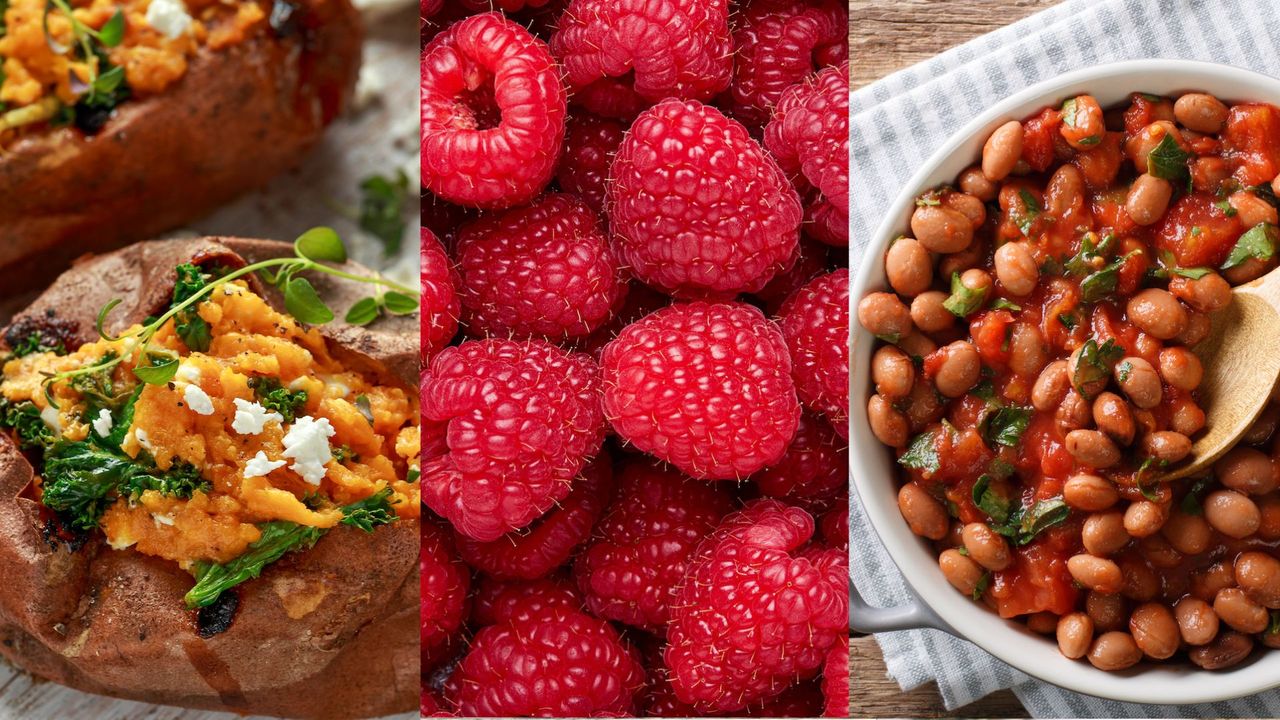

Is your tummy not feeling quite right? Adding more high-fibre foods to your meals could be the key to getting your digestive system back on track. From regular bowel movements and regulated blood sugar levels to increased satiety and better heart health, the humble nutrient is an essential ingredient to a nourishing diet.
There are two main types of fibre - soluble and insoluble - and both play a key role in fuelling your body. The former helps regulate blood sugar, promotes heart health and supports the gut, while the latter protects against constipation by promoting regular bowel movements and supports digestive health. Eating a range of high-fibre foods will ensure you get enough of both.
It is recommended that all adults consume at least 30g of fibre per day, although the average intake is currently around 20g. Not getting enough of this nutrient can cause issues like constipation, bloating and weight gain. However, fortunately, tweaking the foods on your plate can easily boost your levels. You'll recognise many of these hero groceries...
32 high-fibre foods to help your digestive system
1. Raspberries
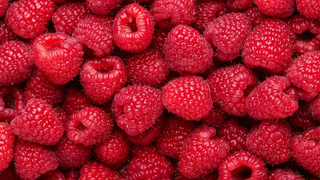
Add raspberries to your yoghurt or porridge for breakfast. The fruit is packed with dietary fibre, helping promote healthy digestion, supporting regular bowel movements and aiding in balanced blood sugar levels. It also serves up nourishing antioxidants, such as vitamin C.
2. Brown rice
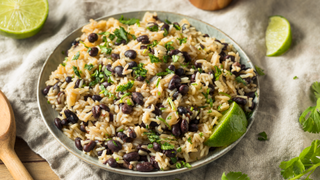
Swap white rice for brown for an easy way to up your intake. It retains the bran and germ, which are rich in dietary fibre - helping promote healthy digestion and maintaining steady blood sugar levels. Additionally, the switch will also leave you feeling fuller for longer.
3. Baked beans
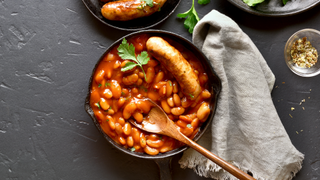
Baked beans are an underrated high-fibre food. They are naturally rich in dietary fibre which, as well as aiding digestion and regulating blood sugar, also contributes to heart health by lowering cholesterol levels. What's more, they contain a combination of soluble and insoluble fibre.
4. Broccoli
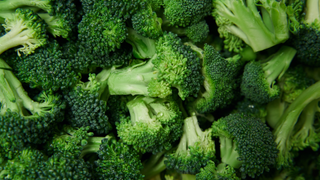
Vegetables are a great way to load up on fibre, and broccoli is a rich source. It contains a combination of soluble and insoluble fibre that can help with satiety and also sustainable weight loss if that is your goal. Additionally, the affordable grocery supports healthy digestion and helps maintain regular bowel movements.
Sign up for the woman&home newsletter
Sign up to our free daily email for the latest royal and entertainment news, interesting opinion, expert advice on styling and beauty trends, and no-nonsense guides to the health and wellness questions you want answered.
5. Lentils
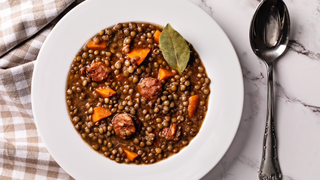
Lentils are a versatile high-fibre option that can be incorporated into a range of dishes. The pulse offers both soluble and insoluble fibre, for boosted digestive health, and it can also help regulate blood sugar levels and promote better heart health by lowering cholesterol.
6. Almonds
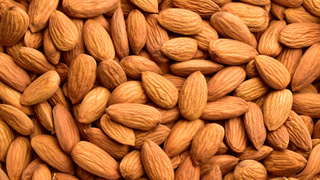
After a high-fibre snack? Reach for a handful of almonds. They will help you maintain steady blood sugar levels and a feeling of fullness until your next main meal, warding off any sweet cravings. Additionally, they are rich in 'healthy' fats, protein and other essential nutrients like vitamin E.
7. Wholewheat bread
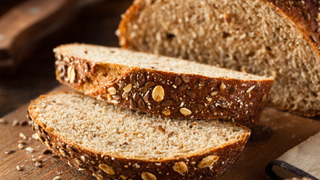
Swap your usual white loaf for a wholewheat alternative. It's an easy way to up your fibre intake - because it retains the bran, germ and endosperm - leading to better digestion and regulated blood sugar levels. Additionally, that slice of toast or sandwich will leave you feeling fuller for longer.
8. Prunes
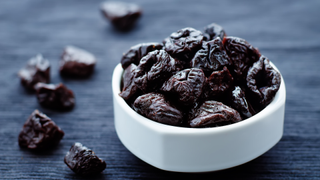
There's a reason why prunes are associated with regular bowel movements. The fruit is packed with dietary fibre, which aids healthy digestion and keeps constipation at bay. It also contains both soluble and insoluble forms of the macronutrient, for regulated blood sugar levels and improved appetite control.
9. Banana
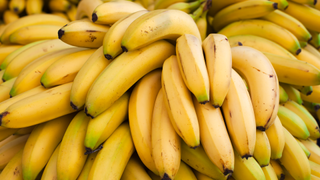
Bananas are an ideal high-fibre snack, particularly if you want to stay fuelled until your next meal. Indeed, it aids feelings of fullness and regulates blood sugar levels. They also provide soluble fibre - which helps lower cholesterol for heart health - and insoluble fibre, which aids digestive health.
10. Rye bread
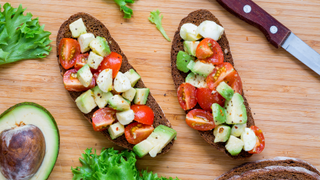
Not all bread is created equal when it comes to fibre - and opting for rye, which is made from rye grains, is a smart choice. It retains its bran and germ, resulting in a higher fibre content compared to white options. This supports healthy digestion, promotes regular bowel movements and helps regulate blood sugar levels.
11. Strawberries
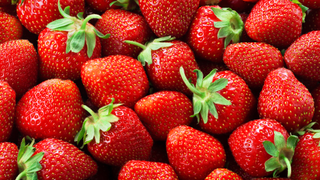
After a high-fibre sweet treat to round off your meal? Strawberries are a great option. The fruit comes loaded with fibre, which contributes to a feeling of fullness and helps maintain regular bowel movements. Additionally, a portion will simultaneously serve up other important nutrients like vitamin C.
12. Popcorn
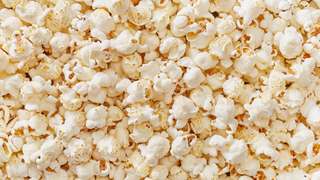
Popcorn is a great snack for upping your fibre intake. It supports healthy digestion, promotes regular bowel movements and helps regulate blood sugar levels. However, beware of varieties with added butter or sugar if healthy, sustainable weight loss is your goal.
13. Porridge
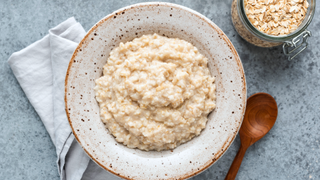
Unsure what to eat for breakfast on a chilly morning? A bowl of porridge will do more than just warm you up. Oats are rich in soluble fibre, particularly a specific type called beta-glucan, and a serving will help support healthy digestion, regulate blood sugar levels and promote a feeling of fullness.
14. Oranges
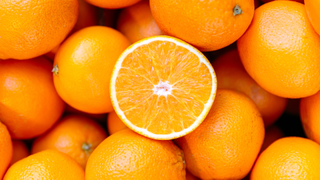
Oranges are a staple nutritious snack for good reason. The fruit is packed with fibre, which helps support healthy digestion, promotes regular bowel movements and helps regulate blood sugar levels. Additionally, you'll also get a nourishing vitamin C boost at the same time.
15. Chia seeds
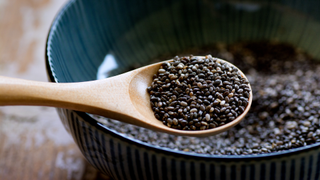
Sprinkling chia seeds onto your meals, such as salads or yoghurt, is an easy way to up fibre intake. They absorb water and expand in the digestive system, contributing to a feeling of fullness, while also being an important source of other nutrients like omega-3 fatty acids and protein.
16. Chickpeas
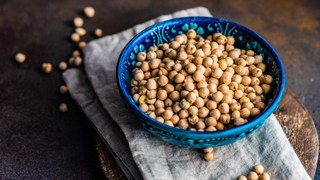
Chickpeas are a great high-fibre food, which can be easily added to a variety of dishes. They not only promote regular bowel movements and help regulate blood sugar levels, but they contribute to a feeling of fullness - which can aid healthy, sustainable weight loss. Additionally, they are an important source of plant-based protein.
17. Wholewheat pasta
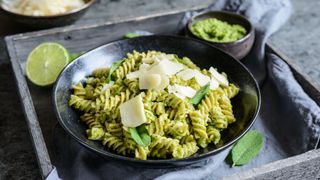
Switching your white pasta for wholewheat is an easy way to up your fibre intake - particularly if weight management is your goal, since it promotes feelings of fullness. This also supports healthy digestion, promotes regular bowel movements and helps regulate blood sugar levels.
18. Avocado
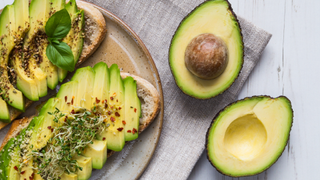
Avocado is an effective high-fibre addition to toast or salad. The fruit aids regular bowel movements and helps regulate blood sugar levels, while also supporting healthy digestion and feelings of fullness. What's more, you'll benefit from its 'healthy' fats too, as well as vitamin E and potassium.
19. Kidney beans
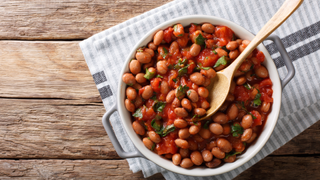
High-fibre foods are often already kitchen cupboard staples that you've forgotten about. Kidney beans serve up a load of fibre, which contributes to a feeling of fullness and promotes regular bowel movements. What's more, the pulse is also a great source of plant-based protein and can be incorporated into a variety of dishes.
20. Brussels sprouts
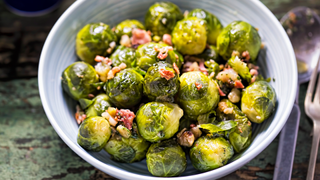
Brussels sprouts may be associated with the festive season, but their high-fibre content suggests they should perhaps be enjoyed all year round. The vegetable can contribute to a feeling of fullness - which can aid in weight management - and also helps regulate blood sugar levels.
21. Dried figs
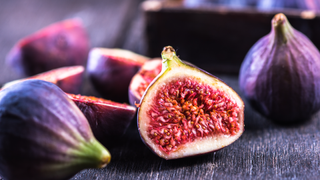
Try chopping up dried figs to add to porridge or yoghurt in the morning. The fruit serves up a significant fibre boost, which aids in healthy digestion, promotes regular bowel movements and helps regulate blood sugar levels. Further still, it contains important nutrients like magnesium and vitamin K.
22. Carrots
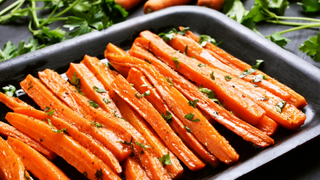
Carrots are an affordable high-fibre option to add to your grocery shop. Enjoy them raw or roasted for boosted digestion, including regular bowel movements and feelings of fullness. Additionally, the vegetable is rich in vitamins E and A, which you can absorb at the same time.
23. Flaxseed
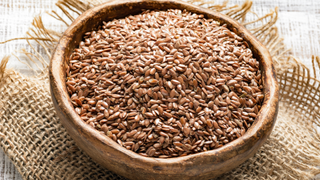
Sprinkle flaxseed onto your porridge or salad for an easy fibrous boost. It provides both soluble and insoluble fibre, which contributes to a feeling of fullness and helps aid heart health. Additionally, it is rich in omega-3 fatty acids and other essential nutrients, making it a nutritious addition to your diet.
24. Green peas
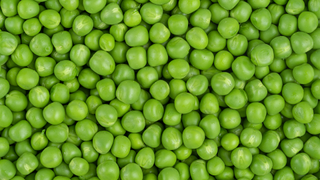
Don't dismiss the nutritional powers of the humble green pea. The vegetable contains a not insignificant amount of fibre, which works to support healthy digestion, promote regular bowel movements and help regulate blood sugar levels. It is also a great source of B vitamins as well as vitamin C.
25. Sweet potato

Sweet potatoes are an ideal high-fibre ingredient to base your meals around. The versatile vegetable supports healthy digestion, promotes regular bowel movements, and helps regulate blood sugar levels. Additionally, it contains rich amounts of vitamin A - which is important for eye health.
26. Black beans
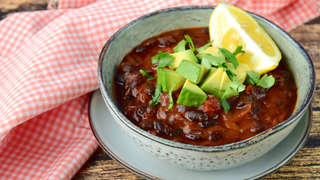
For a filling addition to meals, try loading up dishes with black beans. The pulse is high in fibre, which can contribute to satiety levels and regulate blood sugar levels - both of which can be helpful for long-term weight management. It is simultaneously a great source of plant-based protein.
27. Bran flakes
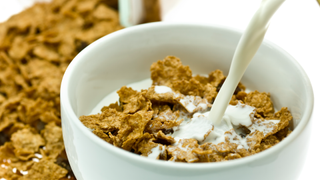
If you're after a high-fibre cereal, bran flakes - made from wheat bran - are a great choice for breakfast. A bowlful in the morning will promote feelings of fullness, keeping you satisfied until lunchtime, and also support healthy digestion more efficiently than lower-fibre cereals.
28. Dark chocolate
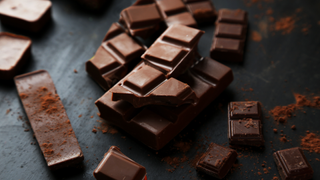
A fan of chocolate? Opt for dark varieties, which serve up a not insignificant amount of fibre - meaning better-stabilised blood sugar levels compared to milk options. Additionally, dark chocolate is rich in antioxidants and minerals, such as iron and magnesium.
29. Kale
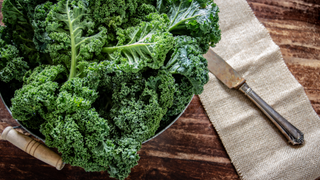
Kale is a great high-fibre food. Loading up your plate with this green, leafy vegetable supports healthy digestion, promotes regular bowel movements and helps regulate blood sugar levels. Additionally, it is rich in vitamins, minerals and antioxidants, making it a highly nutritious addition to your diet.
30. Blueberries
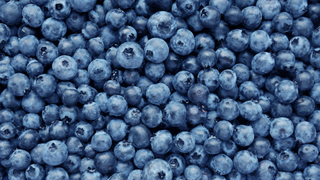
A handful of blueberries makes an ideal high-fibre snack. The fruit contributes to a feeling of fullness, which can aid in weight management, and is also effective at stabilising blood sugar levels. It is also rich in antioxidants, which are important for overall health.
31. Cauliflower
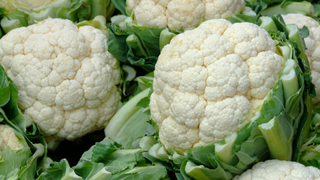
Cauliflower makes a great high-fibre addition to meals. It supports healthy digestion, promotes regular bowel movements, helps regulate blood sugar levels and contributes to a feeling of fullness. What's more, the versatile cruciferous vegetable can be incorporated into a range of dishes.
32. Bulgur wheat
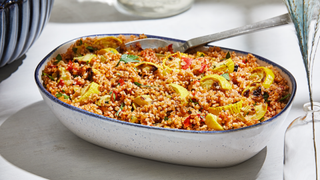
If you're after a grain to provide the basis of your meals, then bulgur wheat is an excellent high-fibre choice. It is a whole grain, meaning it can help support healthy digestion, promote regular bowel movements and steady blood sugar levels. It is also a handy source of B vitamins and plant-based protein.

Lauren is a freelance writer and editor with a decade of print and digital journalism experience. While she specialises in covering health and wellness topics - ranging from nutrition and fitness, to women’s health conditions and mental wellbeing - she has written across a diverse range of lifestyle topics, including fashion, beauty, interiors and travel.
In addition to writing for Woman & Home and sister title Homes & Gardens, Lauren's work has also been published by Women’s Health, The Times, Daily Telegraph, Elle, Cosmopolitan, The Guardian, Marie Claire, Body + Soul, Stylist, Glamour, Grazia, Red, Dazed Digital, Yahoo Life, The Sun’s Fabulous, Get The Gloss and Hello! among others.
-
 Emilia Fox just teamed 2025's trendiest comfy shoe with ultra wide-leg jeans
Emilia Fox just teamed 2025's trendiest comfy shoe with ultra wide-leg jeansSilent Witness star Emilia Fox has showed how to style Mary Jane pumps in the most versatile way with light wash jeans and a cosy knit
By Emma Shacklock Published
-
 Hunter Original Tall Wellington Boots review: this celebrity favourite is well worth the hype
Hunter Original Tall Wellington Boots review: this celebrity favourite is well worth the hypeCool, chic and wet-weather proof, the OG Hunter welly is a British staple
By Charlie Bell Published